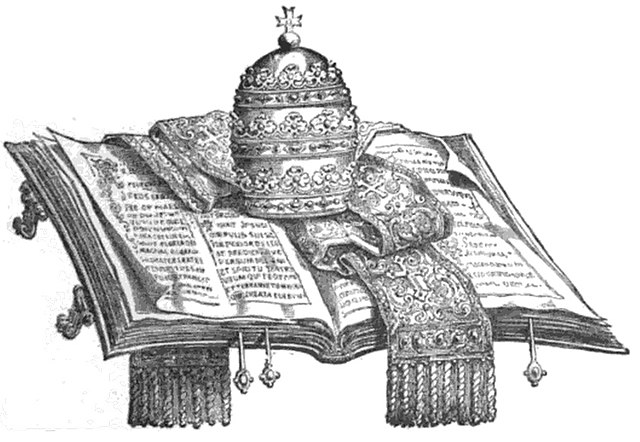Infallibility of the Church
The infallibility of the Church is the belief that the Holy Spirit preserves the Christian Church from errors that would contradict its essential doctrines. It is related to, but not the same as, indefectibility, that is, "she remains and will remain the Institution of Salvation, founded by Christ, until the end of the world." The doctrine of infallibility is premised on the authority Jesus granted to the apostles to "bind and loose" and in particular the promises to Peter in regard to papal infallibility.
...one holy Church is to continue forever. The Church is the congregation of saints, in which the Gospel is rightly taught and the Sacraments are rightly administered. –Augsburg Confession
Papal infallibility is a dogma of the Catholic Church which states that, in virtue of the promise of Jesus to Peter, the Pope when he speaks ex cathedra is preserved from the possibility of error on doctrine "initially given to the apostolic Church and handed down in Scripture and tradition". It does not mean that the pope cannot sin or otherwise err in some capacity, though he is prevented by the assistance of the Holy Spirit from issuing heretical teaching even in his non-infallible Magisterium, as a corollary of indefectibility. This doctrine, defined dogmatically at the First Vatican Council of 1869–1870 in the document Pastor aeternus, is claimed to have existed in medieval theology and to have been the majority opinion at the time of the Counter-Reformation.
Pope Pius IX (1846–1878), during whose papacy the doctrine of papal infallibility was dogmatically defined by the First Vatican Council
1881 illustration depicting papal infallibility
The only ex cathedra application of papal infallibility since its solemn declaration has been for the Marian Dogma of Assumption in 1950. Painting of the Assumption, Rubens, 1626
Supporters of the pope outside the United Nations in 2008 with a banner quoting Matthew 16





